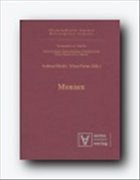Monism is not a particular theory or even a school. However, monistic intuitions or doctrines are grounded in many different ways of philosophizing. For instance, one may argue that there is ultimately only one thing, or one kind of thing, or that there is only one set of true beliefs, one truth, one type of action, one sort of meaning, one way of analysing, explaining and understanding; or, alternatively, one may pursue the project of the unity of knowledge or even that of the unity of science. Taken in this broad sense, monism is often opposed to varieties of pluralism or numerous versions of dualism, since so much philosophical debate has focused on the question whether there are two different kinds of thing, mind and matter, or only one. The aim of the present volume is to discuss some of these aspects historically and systematically. With original contributions by Scott Austin, Andreas Bächli, Alex Burri, Thomas Grundmann, Herbert Hochberg, Mark A. Kulstad, E.J. Lowe, Eduard Marbach, Alex Mourelatos, Klaus Petrus, Matjaz Potrc, Wolfgang Röd, Richard Schantz, Ralf Stoecker, Karsten R. Stueber, Leonardo Tarßn, and Jean-Claude Wolf.

